Working for the World We Share
Buildings have an outsized impact on climate change, causing 37% of all global greenhouse gas emissions, according to the World Green Buildings Council. As a company that makes office furnishings that go into buildings we have the opportunity – and responsibility – to minimize our impact.
Steelcase is focused on lowering our overall greenhouse gas emissions that occur when we make and ship products. In 2020 we achieved carbon neutrality, meaning we’ve invested in renewable energy and carbon offset projects equivalent to our energy consumption. Going forward, our strategy is to continue reducing our absolute emissions (total emissions that are generated in our own operations or ones we control) by 50% by 2030 so we’ll need fewer carbon offsets.
Designing for the Planet
We look for opportunities to do better throughout the entire life cycle of a product – how it’s designed, made, used and what happens at the end of its use. “There are many choices product designers can make,” says Michael Held, Steelcase vice president of global design, “such as using recycled content, designing for recyclability or reuse or minimizing waste. One area we’re focused on is designing products that weigh less, meaning we use less materials in the first place and also use the material in a smarter way so it works harder to get the same or even better results.”
Here are some examples of choices Steelcase designers made to minimize our impact on the planet:
Think
Launched in 2004, Think was a pioneer of sustainable design in office chairs. Think was designed to create less waste by minimizing the number of components and amount of materials used and it can be disassembled in five minutes with common hand tools to make recycling as easy as possible. It was the first product ever to receive LEVEL® 3 certification* under the e3 BIFMA standard and is now the first Steelcase product to receive a Declare label, which is essentially like a nutrition label for building products, providing the highest level of transparency about what goes into the Think Chair.
Steelcase Flex Perch Stool
Designed to help people perch for a moment during an active work session, Steelcase Flex Perch Stool is made from electronic process waste instead of materials sourced from virgin fossil fuel as a raw material. It contains 70% post-consumer recycled content and is 100% recyclable and is BIFMA LEVEL® 3 Certified*.
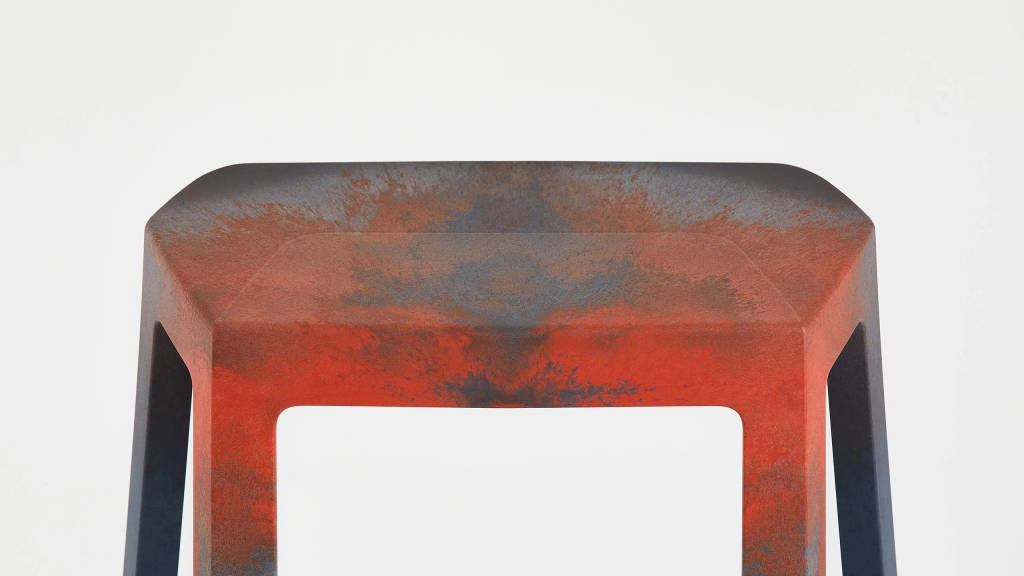
Steelcase Flex Personal Spaces Privacy Wraps
Product designers chose Camira Knit, made from a homogenous post-consumer recycled polyester, as the fabric for the Flex Personal Spaces Privacy Wraps. Its production uses a zero-waste process called flatbed weft technology that requires less energy than a traditional woven fabric loom. Its “Knit to Fit” capability means every component is created to exact measurements, so the process is waste-free. This yarn diverts plastic waste, and can be recycled at its end of life.
Steelcase Series 1 with CarbonNeutral Product Certification
With the same ergonomics as Steelcase Series™ 1, the CarbonNeutral® certified version offsets the carbon impact of the chair’s entire lifecycle. Every purchase of the BIFMA LEVEL 3 certified chair supports trusted global projects in forest management, renewable energy, cleaner cooking and transportation, together removing and avoiding carbon emissions while doing social good.
*Steelcase leads the contract furniture industry with 281 products achieving BIFMA LEVEL certification and have 40% achieved LEVEL 3, the highest and most rigorous certification.
A Force for Good
Steelcase aims to make a lasting difference by leveraging our scale and resources around the globe. The big issues the world faces require bold new solutions. We are committed to coming together with people in our communities to enact meaningful, sustainable social change. We know that only when we work together — businesses, organizations, individuals and governments — can we truly make a positive difference in the world.
Global
Steelcase Introduces The Better Futures Community
An important goal is to use our business to make “better” possible in the places we live and work throughout the world. This year we introduced the “Better Futures Community,” a network of people and organizations working to explore bold new approaches to equity, education and the environment. This community of changemakers invests and accelerates new ideas while collaborating with partners to co-create solutions that make lasting social impact.
Australia
Healing, Respect and Equality
This year we introduced our first of four Reconciliation Action Plans (RAP) called “Reflect.” RAPs provide a framework to support Aboriginal and Torres Strait Islander peoples through job opportunities, professional partnerships and cultural exchange. The reconciliation movement urges Australians to recognize the colonial injustices, trauma and lasting inequalities experienced by indigenous peoples.
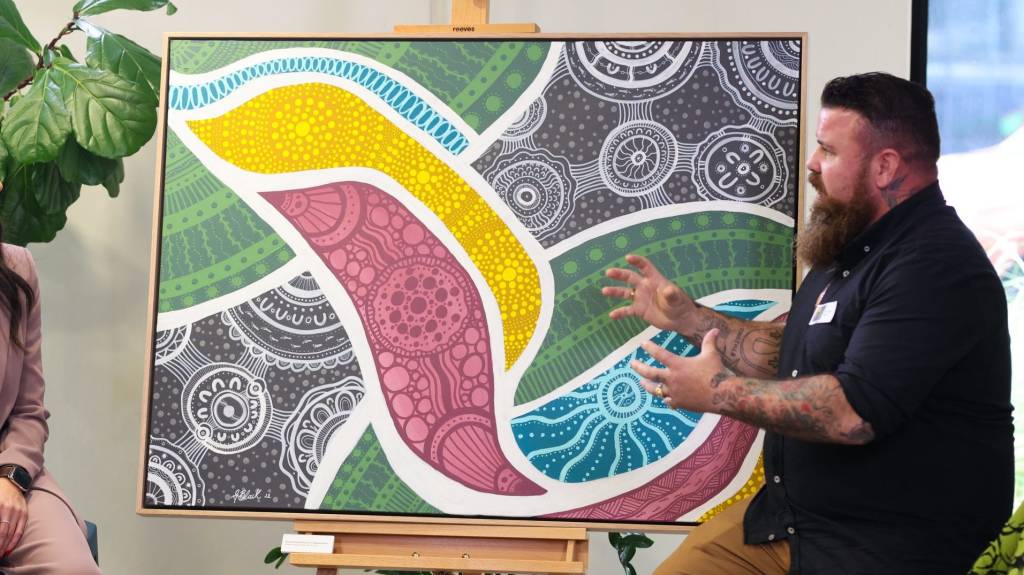
Europe
Employees Mobilize To Help Ukraine
Steelcase Changemakers is a program designed to help employees work with local organizations to take action in the communities where they live and work. Changemaker teams throughout Europe mobilized to help their Ukrainian neighbors. Employees in Cluj organized a donation drive for people seeking shelter in Romania, donating food, blankets, clothes and hygiene products. Changemakers UK raised money for a field kitchen that provides 8,000 fresh meals daily and essential supplies to refugees on the Polish border. In Munich and Rosenheim employees raised funds for temporary housing and much needed supplies. These are just a few examples of how employees worked to make a difference.
India
Women of Steel
Women make up only 12% of the manufacturing sector in India and at the beginning of 2021 less than 10% of the workforce at our plant in Pune, India were women, who mostly sewed or packed boxes. With a focused effort and the launch of a new program called “Women of Steel” designed to support learning, development and engagement, women now make up 60% of the workforce, many of whom are now building the popular Steelcase Series® 1 chair.
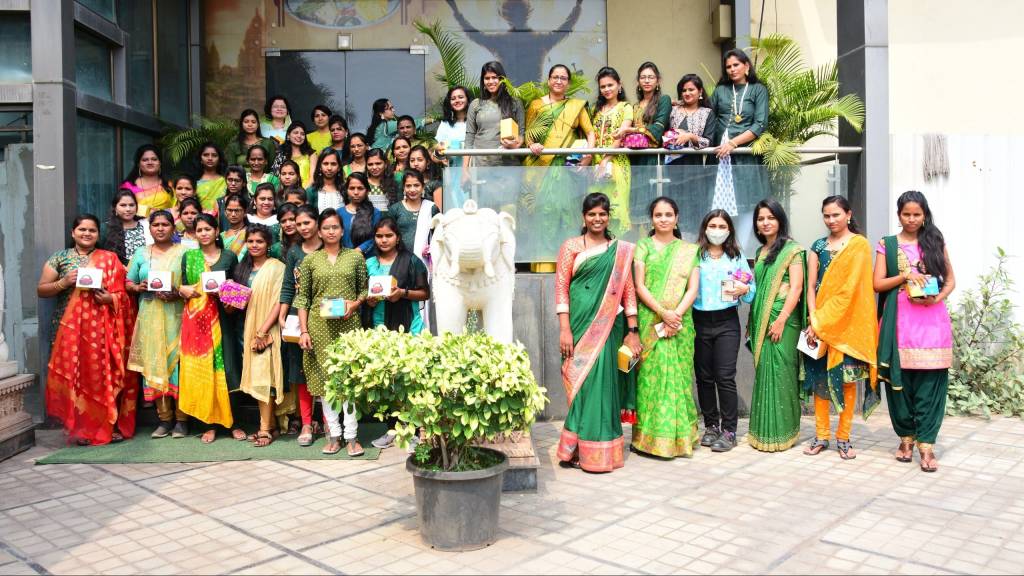
United States
Steelcase Named a Best Employer for Women
Forbes Magazine ranked Steelcase 13th out of the 400 organizations they named as best employers for women in the U.S. This award recognizes companies who rank highly in the areas of parental leave, family support, flexibility, inclusive hiring practices, representation, career and pay equity. Currently, women make up 33% of top executive positions at Steelcase and 64% of our Board of Directors.
Germany + India
Solar Panels Fight Climate Change
We recently installed solar panels to generate power at our plants in Pune, India and Rosenheim, Germany to help use less fossil fuel-generated energy and reduce greenhouse gas emissions. The 493 solar panels installed in Pune contribute up to 50% of the energy needed for daily activities and by the end of 2022, they will begin contributing surplus electricity to the local power grid. In Rosenheim, 76 solar panels and a project which integrates technologies designed to simultaneously produce heat and electricity, deliver approximately 50% of the power requirements.
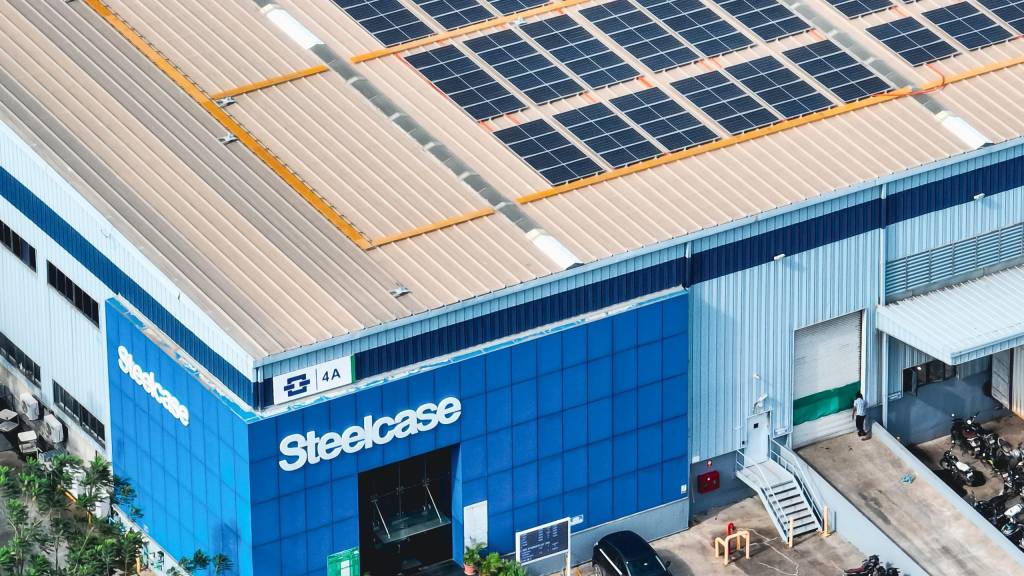
France
Building a Circular Economy
Through a Steelcase program offered in France, Belgium, Switzerland and Luxembourg called Eco’Services, we offer extended use and recycling opportunities to our customers. This program helps find alternatives to landfill through product resale, donations, upcycling and recycling. Eco’Services now offers a new service called Circular by Steelcase to perform gentle reconditioning to bring products back to like-new condition to keep them in use for longer and prevent landfill disposal.
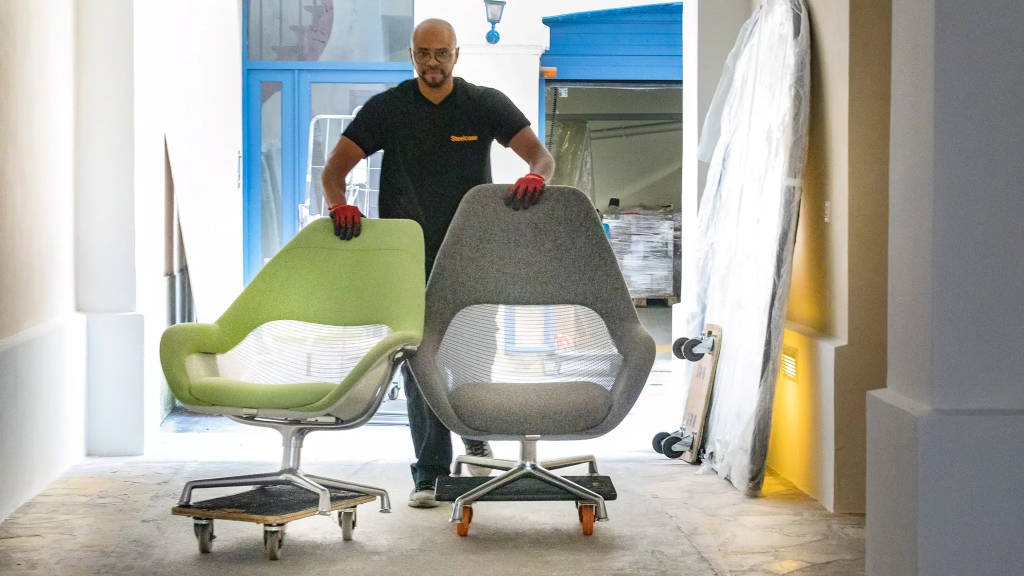
United States
“No” to Landfill, “Yes” to People
Companies want to keep products out of landfills at the end of their intended use so Steelcase is building a network of global end-of-use service providers. Working with a global Seattle-based company to redesign their headquarters, we brought in our North American partner, Green Standards, to help divert 1,252 tons of furniture, fixtures and equipment into a $33,485 in-kind charitable donation – good for the planet and the local community.


